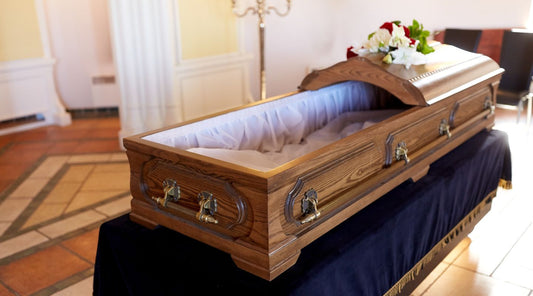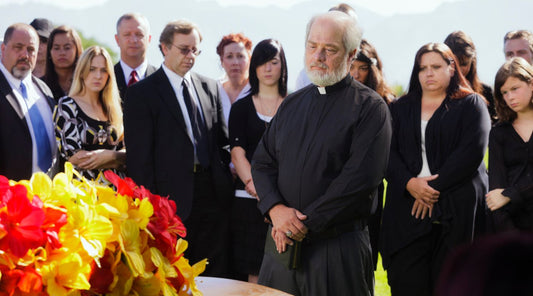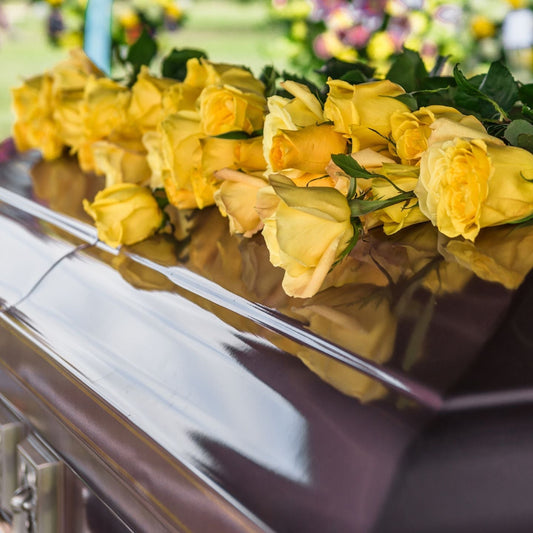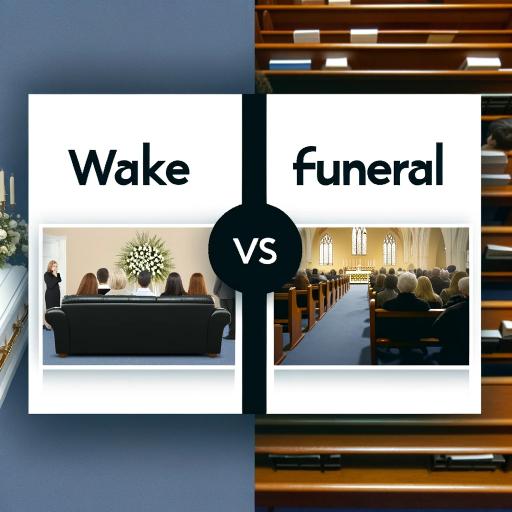
Understanding the Distinction: Wake vs Funeral - What Is a Wake Funeral Compared to a Traditional Funeral Service?
In moments of loss and grief, we have sought solace and closure through ceremonies that honor our departed family and close friends. Two such ceremonies, the wake and the funeral, stand as pillars of tradition and remembrance in many cultures worldwide. A wake and funeral both hold a sacred place, each offering a distinct way to commemorate and celebrate the life of the departed loved one. While both serve the purpose of paying their respects to the deceased person, they each hold unique customs and practices that set them apart. We delve into the origins, customs, and distinctions between wakes and traditional funerals, shedding light on their cultural significance and their role in the grieving process..
What is a Wake?
Wakes find their origins in practices where mourners stay awake through the night to watch over the deceased person and their family and friends, typically called the "calling hours". A wake is a ritual that aim to safeguard the departed soul from evil spirits. This tradition, prevalent in mostly Irish and Catholic cultures, evolved into the modern wakes which is a gathering where family members and close friends come together to share memories and support one another in their grief.

What is a Funeral?
Funerals have diverse origins influenced by religious and cultural practices. These ceremonies often include religious rites for a few hours specific to the beliefs of the deceased loved one and their family. Whether it's a Christian funeral, Islamic Janazah prayer, or Hindu Antim Sanskar, and is typically led by a religious figure. A funeral serves as a formal farewell to the departed where they pay their respects to the deceased, marked by prayers, eulogies, and the eventual laying to rest of the deceased.
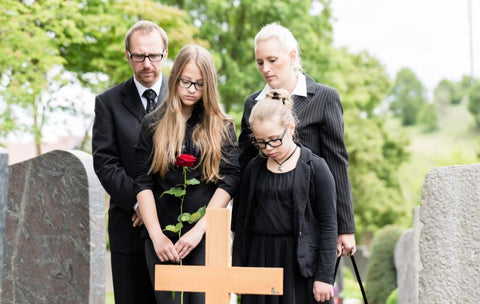
Customs and Practices
Traditional funerals and a wake differ in their customs and practices, reflecting their unique cultural and historical backgrounds. A wake is typically more informal gatherings, often held in the family home or community centers, where mourners come together to offer condolences, share stories, and celebrate the life of the departed. The deceased is not typically present in a wake. Food and drink are also shared as a symbol of communal support, and the atmosphere is one of remembrance, camaraderie, and solidarity in grief.
In contrast, traditional funeral services follow a more structured format with formal ceremonies, often held in religious institutions such as churches, mosques, or temples. Funeral homes also exist to support the grieving family members. These services include a much more formal event accompanied by formal rites, such as prayers, hymns, and readings from sacred texts. The body of the deceased is usually present, either in a casket or a cremation urn, and the service concludes with the actual burial or cremation rites conducted by the religious persons or funeral directors.
Differences between a Wake and a Traditional Funeral Service
The primary difference between a wake and a traditional funeral lie in their formality, structure, and emotional tone. Wakes are characterized by their informal nature, fostering an environment of shared memories and emotional support among mourners. In contrast, traditional funerals are more formal and solemn, guided by religious or cultural traditions that dictate the proceedings involved.
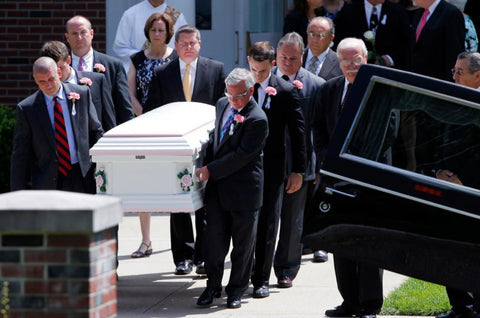
Formality:
A wake, unlike funerals, tend to be more informal and held at either the deceased’s home or community centers.
The formal funeral maintains formality and structure and typically takes place at religious institutions like churches, mosques, or temples.
Purpose:
The primary focus of a wake is to support the mourners through sharing memories, offering condolences, and supporting the deceased’s family and friends in their grief.
The funeral focuses more on the farewell of a loved one, involving certain rites and following a religious structure.
Emotional Tone:
A wake can often embody a celebratory atmosphere with laughter, storytelling, and reminiscing about the deceased's life, like an end of life celebration.
Funerals tend to maintain a somber and solemn tone with the formal ceremonies, marked by expressions of grief and reverence for the deceased.
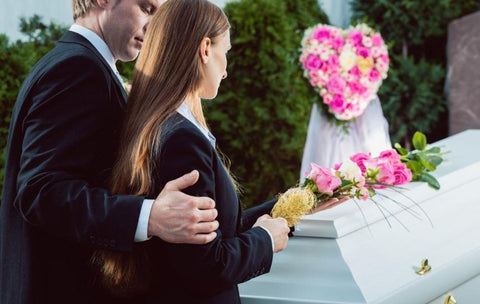
Presence of the Deceased:
A wake may or may not have the loved one’s deceased body, this depends on the cultural customs and family preferences.
In a funeral, the deceased's body is typically present, either in an open casket, closed casket, or an urn holding, which are typically displayed for viewing during the service.
Religious or Spiritual Elements:
A wake doesn’t necessarily incorporate religious or spiritual elements, depending on cultural customs and the preference of the surviving family.
Funerals are held on religious or spiritual elements specific to the beliefs of the deceased and their family.
The Role of Funeral Homes
As the name suggests, a funeral home play a pivotal role in facilitating a traditional funeral. A funeral home provide a range of services to grieving families that aims to help the grieving family in the funeral planning. From embalming and preparing the body for viewing to arranging the logistics of the funeral service, preparing the casket or urn, and burial or cremation. The funeral home is a more modern concept, it offers comprehensive support during the difficult time so the family does not need to worry about the funeral planning. Funeral directors guide families through the process, offering assistance with funeral arrangements, obituaries, and memorialization options.
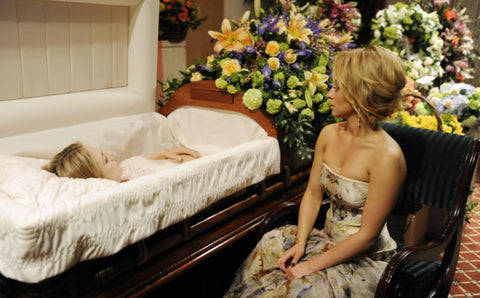
Understanding Memorial Services
A memorial service works slightly similar to both a wake and a funeral. A memorial service is a ceremony held to honor and celebrate the life of the deceased similar to a wake, this is also typically held without the presence of the body. Unlike a typical funeral which focus on the rituals surrounding the deceased's burial or cremation, a memorial service offer a more flexible and personalized approach to remembrance. These services may include tributes, speeches, music, and other elements that reflect and celebrate the life and legacy of the departed individual.
While a wake, funerals, a funeral home, and memorial services differ in their approaches, they all share a common purpose: honoring and remembering the life of the deceased loved one and to pay their respects. Wakes provide an informal gathering for sharing memories and offering support while a tradition funeral delivers a structured farewell. Despite these differences, the ceremonies play crucial roles in the grieving process, providing comfort, solace, and a sense of closure for the bereaved. Ultimately, whether through the laughter and storytelling of a wake or the certain rituals of the funeral service, we find strength and support by coming together to honor the lives of those we have lost.
